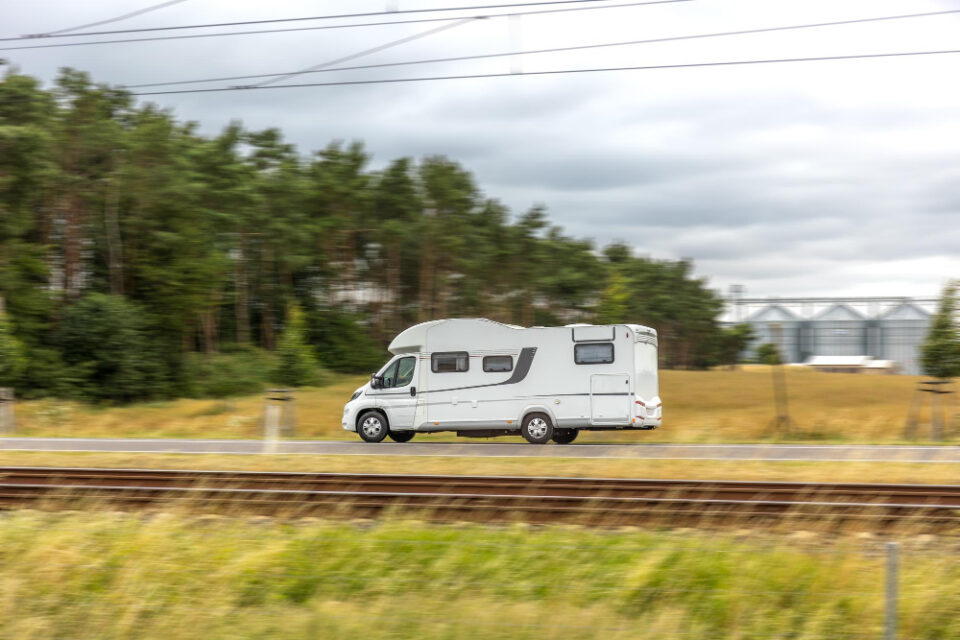Choosing the right battery for your RV isn’t just about powering your lights or appliances — it’s about ensuring comfort, convenience, and safety on the road. Whether you’re a weekend camper or a full-time RVer, the right RV battery will keep your systems running smoothly when you’re off the grid.
In this guide, we’ll walk you through everything you need to know about RV batteries so you can make the right choice for your travel lifestyle.
Table of Contents
1. Understand the Two Types of RV Batteries
RVs usually use two types of batteries:
Starting Battery (Chassis Battery)
- Powers the engine, like a regular vehicle battery
- Delivers short bursts of energy to start the motor
- Not suitable for powering RV appliances
Deep Cycle Battery (House Battery)
- Powers RV electronics and appliances (lights, fans, water pumps, etc.)
- Designed for long, slow energy discharge over time
- Can be discharged and recharged many times
For most RV owners, deep-cycle batteries are the ones you’ll be choosing.
2. Know the Types of Deep Cycle RV Batteries
There are three main options for deep cycle RV batteries:
Flooded Lead-Acid (FLA)
- Budget-friendly and widely available
- Require regular maintenance (checking and refilling water)
- Must be installed in a ventilated space
AGM (Absorbed Glass Mat)
- Maintenance-free and sealed
- Spill-proof and vibration-resistant
- Charge faster and have a longer lifespan than flooded batteries
Lithium-Ion (LiFePO4)
- Lightweight, compact, and extremely long-lasting
- Charge quickly and can be deeply discharged
- Higher upfront cost but lower lifetime cost
- Ideal for off-grid or solar-powered RV setups
3. Calculate Your Power Needs
Before you buy, estimate how much power you’ll use in a day. Add up the wattage of devices like:
- Lights
- Fans
- Fridge
- Water pump
- TV or laptop
- Phone chargers
Then, choose a battery (or battery bank) that provides enough Amp-Hours (Ah) to cover your daily use. For example:
If your total power use is around 100Ah per day, consider a 200Ah battery or a setup that gives you at least double your daily need for optimal battery life.
4. Match the Battery to Your RV Lifestyle
| RVer Type | Best Battery Option |
|---|---|
| Occasional weekend camper | Flooded Lead-Acid or AGM |
| Full-time traveler | AGM or Lithium-Ion |
| Off-grid/boondocking enthusiast | Lithium-Ion + Solar Setup |
| Cold climate adventurer (e.g. Canada) | AGM or heated Lithium-Ion battery |
5. Don’t Forget Voltage and Configuration
Most RVs operate on 12V systems, but you can use:
- One 12V deep-cycle battery
- Two 6V batteries in series (for increased capacity and durability)
- Multiple batteries wired in parallel or series-parallel for extended capacity
Consult with an RV technician or battery expert to ensure your configuration is correct and safe.
6. Choose a Reputable Supplier
Look for a battery provider that offers:
- Multiple battery options (FLA, AGM, Lithium)
- Expert advice for RV owners
- Reliable warranty and after-sales support
- Local availability for fast service
If you’re in Calgary or Regina, Batteries Store offers top-quality RV batteries along with expert guidance to help you choose the perfect fit.
Conclusion
Choosing the right RV battery is essential for reliable travel. Whether you’re plugging into shore power, using a generator, or going completely off-grid with solar, the right battery setup keeps your adventure stress-free.
Need help finding the perfect RV battery in Calgary or Regina?
Visit Batteries Store or contact our team of experts — we’re here to power your journey, wherever the road takes you.

